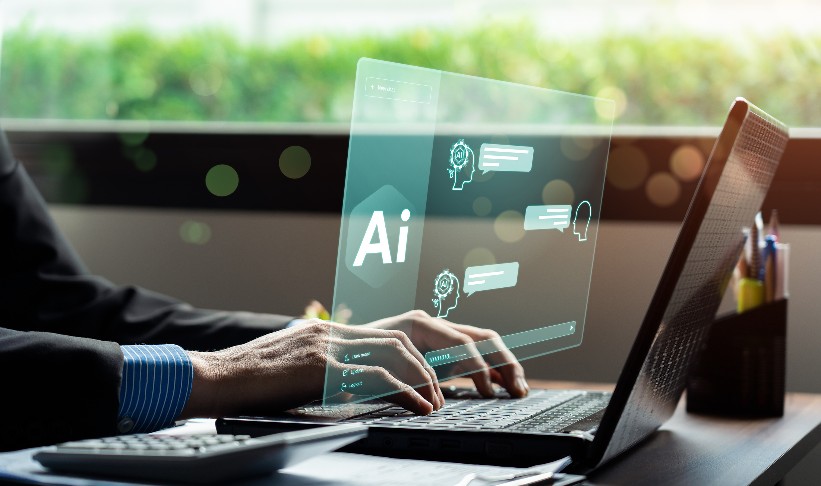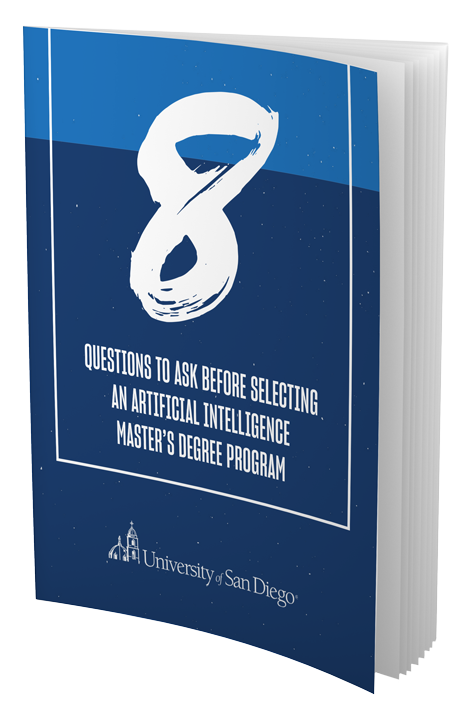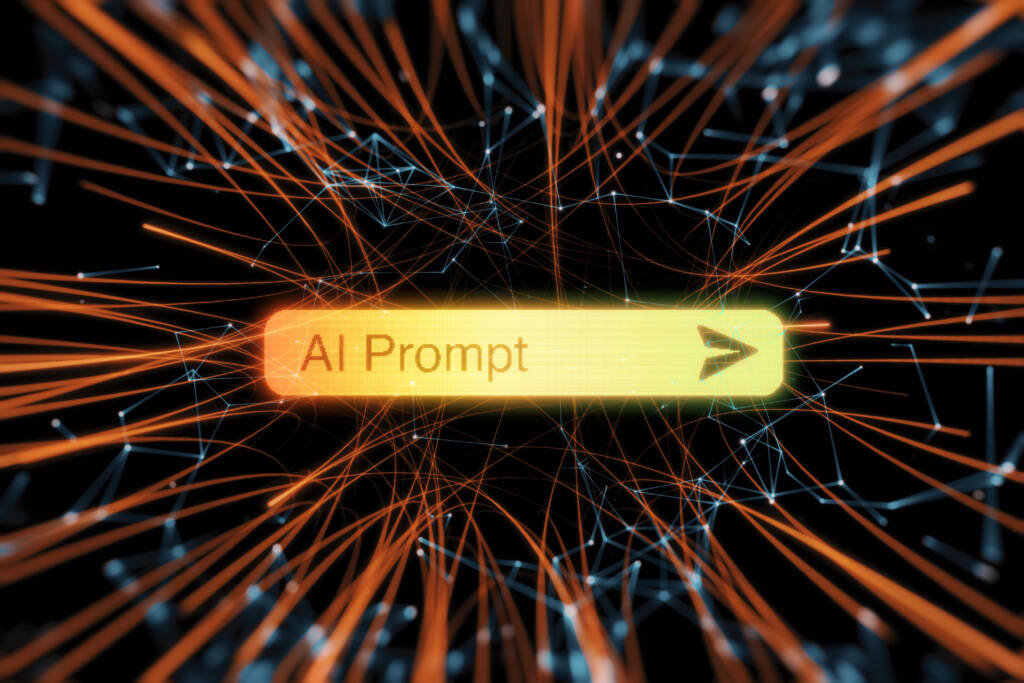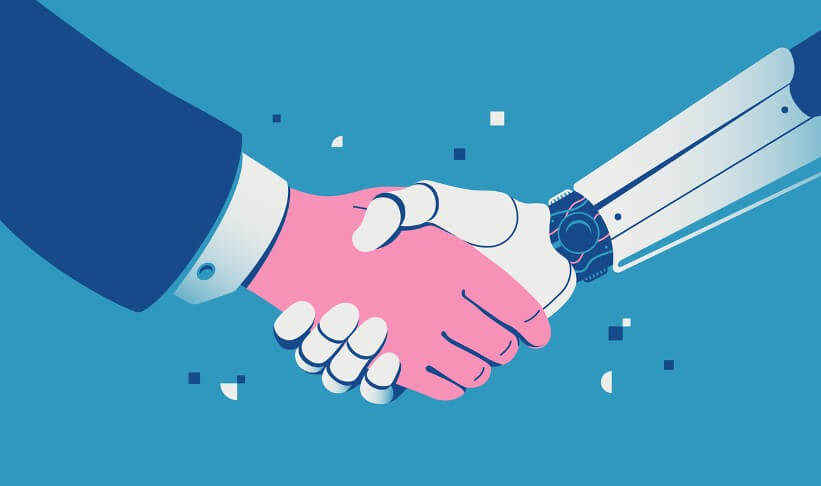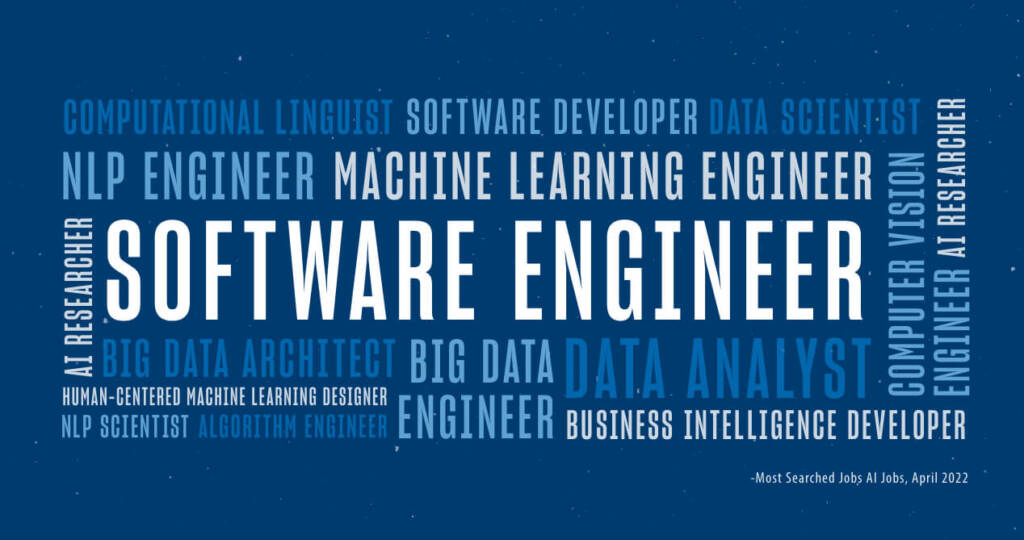The artificial intelligence application ChatGPT debuted in late 2022 and has been making headlines ever since. Its popularity was almost immediate, generating more than 1 million users within five days of its debut. And now businesses, organizations and AI professionals are not only trying to determine how this piece of innovative technology will impact everyday operations but also what it means for the field of artificial intelligence and related careers.
What Is ChatGPT?
ChatGPT is an artificial intelligence chatbot that interacts with humans and produces conversational text. It was developed by the company OpenAI, which was originally founded in 2015 by Elon Musk and a handful of other Silicon Valley investors.
The company explains that the dialogue format of ChatGPT makes it possible to “answer follow-up questions, admit its mistakes, challenge incorrect premises, and reject inappropriate requests.” ChatGPT also has a sister application called InstructGPT, which follows instructions and provides detailed responses.
In an interview with a San Diego news station, Dr. Anna Marbut, a professor at the University of San Diego’s Applied Artificial Intelligence Master of Science program, explained that ChatGPT’s responses, which mimic how humans communicate, is what makes the technology so exceptional.
How Does ChatGPT Work?
This artificial intelligence application uses machine learning and natural language processing to create conversational, human-sounding responses to written prompts. ChatGPT was developed and trained with a variety of data, including books, articles and conversations, and as a result, it can understand many topics. The chatbot remembers your dialogue thread and essentially produces a conversation. Users have found ChatGPT can create:
- Poetry and wedding vows
- Cover letters
- Job descriptions
- Essays
- Headlines
- Abstracts for scientific articles
- Product descriptions
- Blog posts
- Social media content
Additionally, the chatbot can help with research, brainstorming and writing by handling calculations, checking spelling and grammar or functioning as a thesaurus or dictionary. Users can also replace a typical Google search with a question to ChatGPT, although it (currently) won’t provide all the functions of a search engine, such as location-specific answers (unless you specifically ask) or links to other sources.
ChatGPT Concerns & Challenges
ChatGPT is an artificial intelligence chatbot fueled by information; in other words, it’s a machine — not a person — which means there will be misunderstandings and miscommunication, especially since the technology is still evolving. Here are some of the major concerns and challenges:
- Creation of false material. In one case, ChatGPT was used to create false articles from The Guardian, a British newspaper.
- Plagiarism and cheating in education. While the tool can be used effectively in the classroom, educators are already dealing with issues of plagiarism and cheating. According to a recent Forbes article, 89% of surveyed students reported using ChatGPT for a homework assignment; 48% admitted to using it for an at-home test or quiz and 53% had the chatbot write an essay.
- Threats to certain jobs. The idea of robots replacing human workers is nothing new, but ChatGPT has once again fueled the conversation about whether AI can effectively execute certain tasks faster than a person. According to a recent Goldman Sachs report, artificial intelligence — including new platforms like ChatGPT — could affect up to 300 million jobs around the globe.
- Privacy concerns. Privacy has always been an AI ethical concern, but according to CNN, the chatbot recently had a bug that allowed users to access personal information from others. After OpenAI disclosed the data breach, Italy issued a temporary ban on ChatGPT.
Prof. Marbut “admitted ChatGPT does not come without concerns.” The chatbot does provide disclaimers in their terms of use: “Artificial intelligence and machine learning are rapidly evolving fields of study. We are constantly working to improve our Services to make them more accurate, reliable, safe, and beneficial. Given the probabilistic nature of machine learning, use of our Services may, in some situations, result in Output that does not accurately reflect real people, places, or facts.”
ChatGPT Implications For the Field of Artificial Intelligence
It may be too soon to predict ChatGPT’s widespread effects on the field of AI, but the chatbot is already influencing the job market and AI technology.
The company Resume Builder recently surveyed 1,000 business leaders about ChatGPT and discovered that 49% are already using the chatbot. Almost half (48%) say that ChatGPT has already replaced workers, and an overwhelming majority (90%) report that ChatGPT experience is an advantageous skill for job seekers.
Job postings on popular sites like LinkedIn and Indeed are already including ChatGPT familiarity as a desired skill.
ChatGPT is also making waves with other technology companies — most notably Google, which issued a “Code Red” after the chatbot’s debut, meaning the ChatGPT was considered a major threat to the popular search engine.
The “Code Red” declaration resulted in the return of Larry Page and Sergey Brin, Google’s co-founders who had left their day-to-day positions at the company. After ChatGPT’s debut, Page and Brin returned to help prioritize Google’s own AI capabilities.
Opportunities for AI Professionals
While there are concerns about ChatGPT and other technology platforms eliminating certain positions, the reality is there will be increasing demand for AI professionals who can help develop and advance similar technologies as companies look to compete with ChatGPT.
In a recent article, AI researcher Osman Ramadan explained that his extensive experience has taught him that “companies can’t rely solely on a bot, which is liable to produce erroneous and prejudiced content. Instead, he thinks ChatGPT will be used as a tool to boost productivity rather than replace professionals.”
In general, artificial intelligence careers are booming — and there’s no doubt ChatGPT and similar platforms will lead to even more positions in the field. Popular AI careers include:
- Big data analyst
- Natural language processing engineer
- Research scientist
- Software engineer
- AI engineer
- AI developer
- Machine learning engineer
- Business intelligence analyst
- Robotics engineer
The Future of AI Careers and ChatGPT
While ChatGPT is still considered relatively new, its effects on the world of artificial intelligence are already far-reaching. Expedia, the popular trip-planning company, has incorporated ChatGPT in its mobile app to help travelers with finding attractions and hotels and answering other travel-related questions.
Companies are using ChatGPT as a coding tool and a personal assistant; others are using the software to write emails and conduct keyword research.
Plus, articles about the best ChatGPT alternatives are already surfacing as start-ups and other technology companies look to compete with the popular chatbot.
While this innovative technology is still evolving, one thing is clear — artificial intelligence professionals will need to stay on top of the latest developments and information in order to successfully work with AI platforms like ChatGPT.
Continuing education is an excellent way to obtain this much-needed experience, and USD’s Master of Science in Applied Artificial Intelligence curriculum not only provides a comprehensive overview of the field but also covers the latest trends and information, including natural language processing developments and ethics in AI.
Interested in Exploring an Artificial Intelligence Master’s Degree?
With artificial intelligence driving innovation across nearly all industries, employers are seeking skilled AI professionals and paying top dollar to hire them. And since nearly all artificial intelligence jobs require a master’s degree, there are numerous academic programs to choose from. Download our eBook — 8 Questions to Ask Before Selecting an Applied Artificial Intelligence Master’s Degree Program — to help you find the right program for your career goals.
